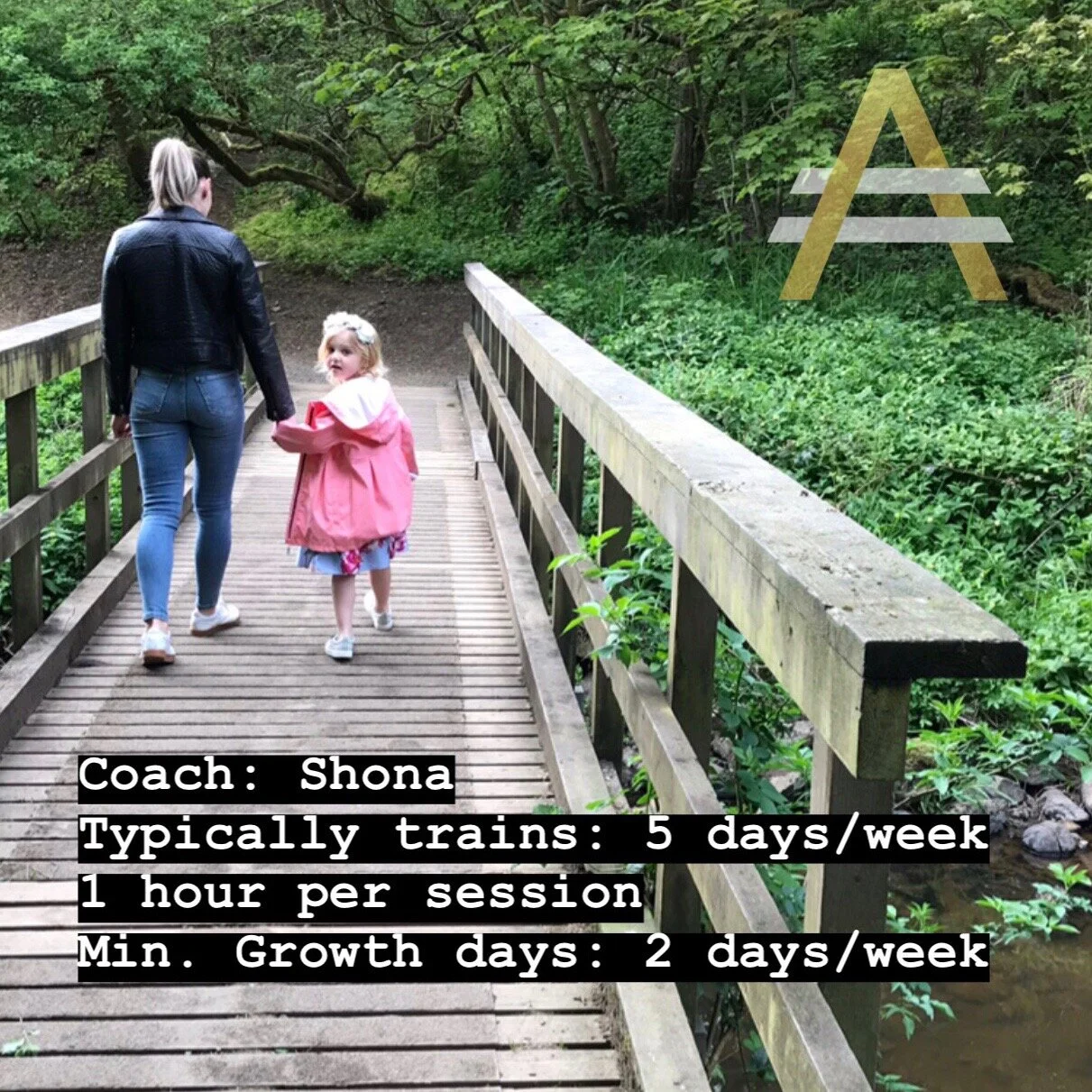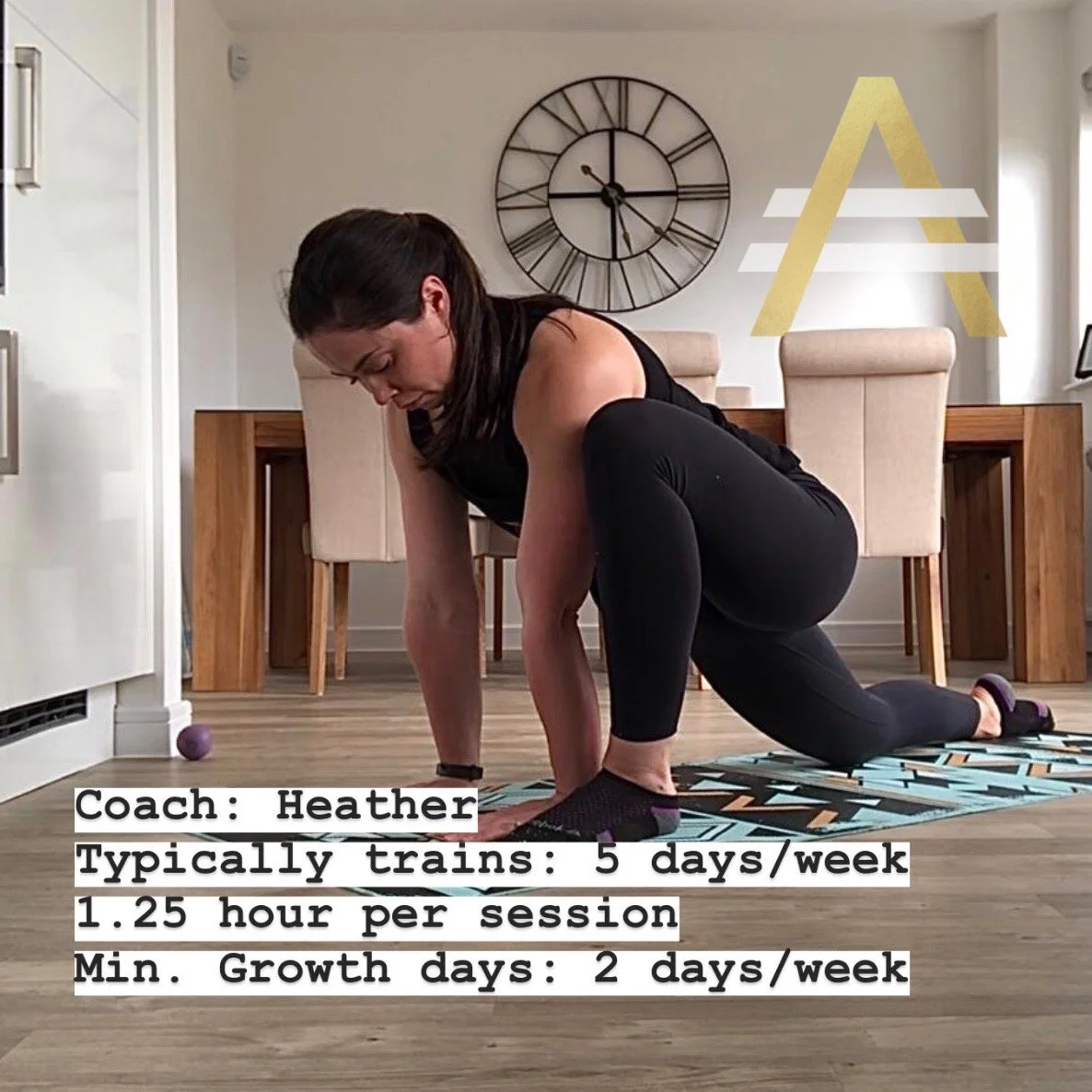Why is it important to take ‘Growth’ days?
When Coach advises you on how to improve your diet…
When Coach gives you accessory work to better your squat…
When Coach encourages you to take rest days to promote recovery…
Why is it important to take ‘Growth’ days?
At Aristos Fitness, where the promotion of healthy minds and bodies is one of our main priorities, we’d like to share why we think it’s important to schedule in days for rest, recovery and, ultimately, growth.
Exercise causes physical stress in the body. Other stressors include emotional, financial, family, relationships… not to mention our current situation which is proving to be a significant stressor for most of us. Our bodies can’t differentiate between these stressors and chronic high levels of stress could impair your recovery from training. This could mean subsequent training sessions are less effective.
There can be several reasons why people are stuck in this mindset of feeling the need to work out every day, here are some of the most common;
Fear of not working hard enough
More isn't always better. Our bodies can only adapt to what we can recover from. If you're training numerous times a day, 7 days per week, the only gains you can expect are injuries!
If you struggle with the concept of rest days because you feel like you’re not making progress on those days, try reframing them as ‘growth days’. Think of them as part of your training, not the polar opposite. Know that when your body isn’t being stressed, that it’s taking the opportunity to rebuild, and come back stronger.
Ask yourself if you’re happy with your progress in the gym. If not, take a look at what you could be doing to change - that doesn’t require spending more hours working out. More sleep, better nutrition, less stress, improved mobility? All of these things, along with rest periods, will aid recovery which is essential for growth. When you understand that growth takes place not during training, but during recovery, it becomes easier to view it as part of your plan.
The graph below illustrates how training too soon and too often can have a negative effect on our recovery and ultimately our progress.
If you worry about not doing enough, take a look at our coach training schedules below to see how they compare with yours. Aristos Head Coach Robbie didn’t progress to a 201kg back squat and 22 unbroken Strict Handstand Push Ups by refusing to take rest days!
2. You feel like you can’t get through the day without it
Maybe your reasons for working out run a little deeper. Do you feel like you use training as a coping mechanism or distraction? You refer to it as ‘me time’, but really you’re using it as an escape from reality. This is a common reason why some people never take a day off.
This can become clear on days when you can’t workout for some reason. Does this make you feel anxious? Moody? Irritable? If so, perhaps it’s time to find another focus while you work through the underlying reasons.
Here are some ideas for growth days to help steer you away from using exercise as a crutch;
Spend time preparing and cooking a meal, or prepping food for the week.
Take part in a longer mobility session or yoga.
Go for a long walk, listen to a podcast or enjoy it ‘unplugged’.
Declutter! Clear out a cupboard or a room to declutter your space and mind while still staying active.
Meditate. No need to get the candles and yoga pants looked out, some simple breathing techniques and emptying of the mind will be effective!
Play a fun, active game with the kids.
Read a few chapters of a good book.
Watch a movie.
Play a video game.
Basically, something you enjoy doing and look forward to!
3. Fear of missing out
This one is possibly the most common but also the easiest to overcome. Do you look at the workouts and think ‘ooh that looks a fun one! Maybe I’ll rest later in the week…” and before you know it you’ve said that every day and the rest day never materialised?
Luckily, at Aristos, workouts are always on Wodify in advance so there’s adequate time to pick the ones you want to do. Or more importantly–if progress is important to you–pick the ones you should be doing! Choose the ones that best attack your weaknesses, and plan some recovery activities on 2 of the others. As Robbie programs progressive workouts, it’s a good idea to try to stick to the same rest days each week, rather than dipping in and out of different plans.
4. You enjoy it, so why not?
That’s reassuring to hear that you enjoy our classes so much that you just can’t stay away! What is it about training that you enjoy so much? Maybe it’s not the actual workout but the friendly banter of your gym pals, or the addictive endorphin rush you get afterwards. Surely it isn’t thrusters??
Whatever it is - try to keep it at a level that you’ll continue enjoying it for years to come. Working out 7 days per week is a sure fire way to get tired of it, quickly!
5. It’s what you’ve always done
When you take responsibility for your own training, some of it will come down to what you learn from coaches, peers and industry influencers, but much of it is highly individual, and takes a bit of trial and error to see what works for you. If you’ve never tried incorporating growth days into your training plan because you feel like what you have is working, I’d encourage you to give it a go for several months, and I guarantee you’ll see positive changes in performance!
It can be difficult to break a routine that you’ve become accustomed to, perhaps ignoring signs that you haven’t recovered just because your training schedule is so habitual. It’s a valuable practice to learn to listen to your body and if you're unusually sore, overtired and unmotivated then these could be signs you should skip training.
6. You exercise as an excuse to eat what you want
Do you train every day as a way of eating what you want? The energy expended during exercise may not be as high as you think.
There are 4 processes involved in energy expenditure;
Basal Metabolic Rate (BMR)- the energy required by your body to function efficiently.
Non exercise activity thermogenesis (NEAT)- the energy we expend doing everything that is not sleeping, eating or sports-like exercise (walking, housework, fidgeting).
Thermic effect of feeding (TEF)- the energy required to digest food. Protein takes slightly more energy to digest than carbohydrates and fats and Exercise Energy Expenditure
(EEE)- the energy burnt during any exercise activity.
As you can see from the graph only 5% of our body’s total daily energy expenditure (TDEE) is lost through exercise! So yes, on training days you will burn slightly more calories but does this justify a pizza or a tub of Ben & Jerry’s every time you train? Unfortunately, no! You will still gain weight if calories in are higher than calories out regardless of how much you exercise!
Instead, think of fuelling your body appropriately for training and health. Consume adequate protein to help with recovery and building muscle, healthy sources of fats, wholegrains, fruit and veg. If this equates to 80% of your diet then the other 20% can be filled with less nutrient dense options like pizza and ice cream!
Rest to restore
Resting in order to recover and grow isn’t just about becoming more physically prepared for your next workout, it also prepares your mind to tackle it too. Stressing your body and mind day in day out without room for restoration leaves us operating at a less than optimal level.
It’s a vicious circle, so not only are we hammering our bodies and not allowing adaptation to take place in its entirety, we’re also not going to be able to perform at full capacity either. And so begins a downward spiral of disappointment and consequently feeling the need to work harder to rescue our plateauing performance.
If you feel like any of the above applies to you, and you’re interested in keeping exercise as part of a healthy and balanced future, why not try some of the suggestions we’ve made and see if your performance in the gym–and life outside of it–sees a marked improvement!










